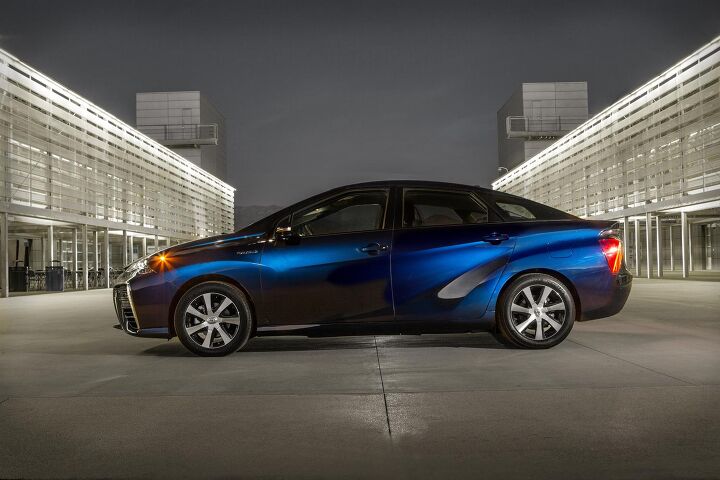Carter To Musk: Hydrogen Just One Basket For Toyota's Eggs
Remember when Tesla CEO Elon Musk declared that Toyota was a fool to invest in hydrogen? Twice? Toyota had a few words to say in return last week.
Ecomento reports Toyota Senior Vice President of Automotive Operations Bob Carter took Musk to task regarding comments made during the latter’s annual Tesla shareholders meeting last June, as well as those made earlier this month at the Automotive News World Congress, when Musk suggested methane or propane as a better energy storage mechanism while declaring hydrogen “an incredibly dumb one to pick”:
I’m a little disappointed in Mr. Musk’s comments in Detroit last week. But I understand. If I was in a position that I had all of my eggs in one basket I would perhaps be making those same comments. When you take a look at the future, [FCVs are] not a 24- to 36-month play. When you start looking in the 2020s, anybody that would deny [the potential of] moving from an oil-based economy to a hydrogen-based economy [isn’t] looking at the future correctly.
Carter’s response, made last week during the J.D. Power Automotive Summit in San Francisco, come on the heels of Toyota’s unexpected response to its Mirai FCV. Though not due in U.S. showrooms until later this year, the automaker received over 16,000 requests for information on the car. Meanwhile, the FCV has 1,500 confirmed pre-orders in its home market of Japan, with Toyota likely to boost production as interest in the Mirai grows.
Seattle-based writer, blogger, and photographer for many a publication. Born in Louisville. Raised in Kansas. Where I lay my head is home.
More by Cameron Aubernon


































Comments
Join the conversation
If battery technology improves, Toyota will be able to mass produce EVs in nothing flat. If substantial advances to battery technology are made, then they will probably come from a government research lab, university program or private company that specializes in battery technology, not from an automaker. There isn't much reason for TMC to spend much effort on battery development. Let someone else do it first, if that's possible.
"....anybody that would deny [the potential of] moving from an oil-based economy to a hydrogen-based economy [isn’t] looking at the future correctly." HAHAHAHA! What an imbecile. Oil/fossil fuels are a source of energy- it takes less energy to extract, produce and distribute them than they provide, so you can run an economy from them. You need to take the energy from a source, which is usually a fossil fuel with it's own whole supply chain, and this is one extra step. Hydrogen is an alternative to batteries- not fossil fuels! It's just a way to store energy you got from an actual source.
Given hydrogen's innate properties, it is a Houdini escape artist. One aspect of this problem is that there are severe storage losses. The other face of this problem will show up after a few explosions in underground parking garages. Then insurance companies will ban them from using the garages. Which they should do now rather than wait. Hydrogen as a car fuel is a stupid idea, and probably its promotion can be traced back to oil interests delaying development of true alternatives.
Here are details on why hydrogen fuel cells will never be more than about 1/3 as efficient as a battery electric vehicle. Think about it...you'll need to build 3-4x as many power stations to accomplish the same thing; that's huge! http://phys.org/news85074285.html In the mean time, since we currently make our H2 from natural gas, burning the natural gas directly in combustion cars will offer similar or perhaps better efficiency, the infrastructure is already in place, and it can be implemented for a tiny fraction of the price (perhaps